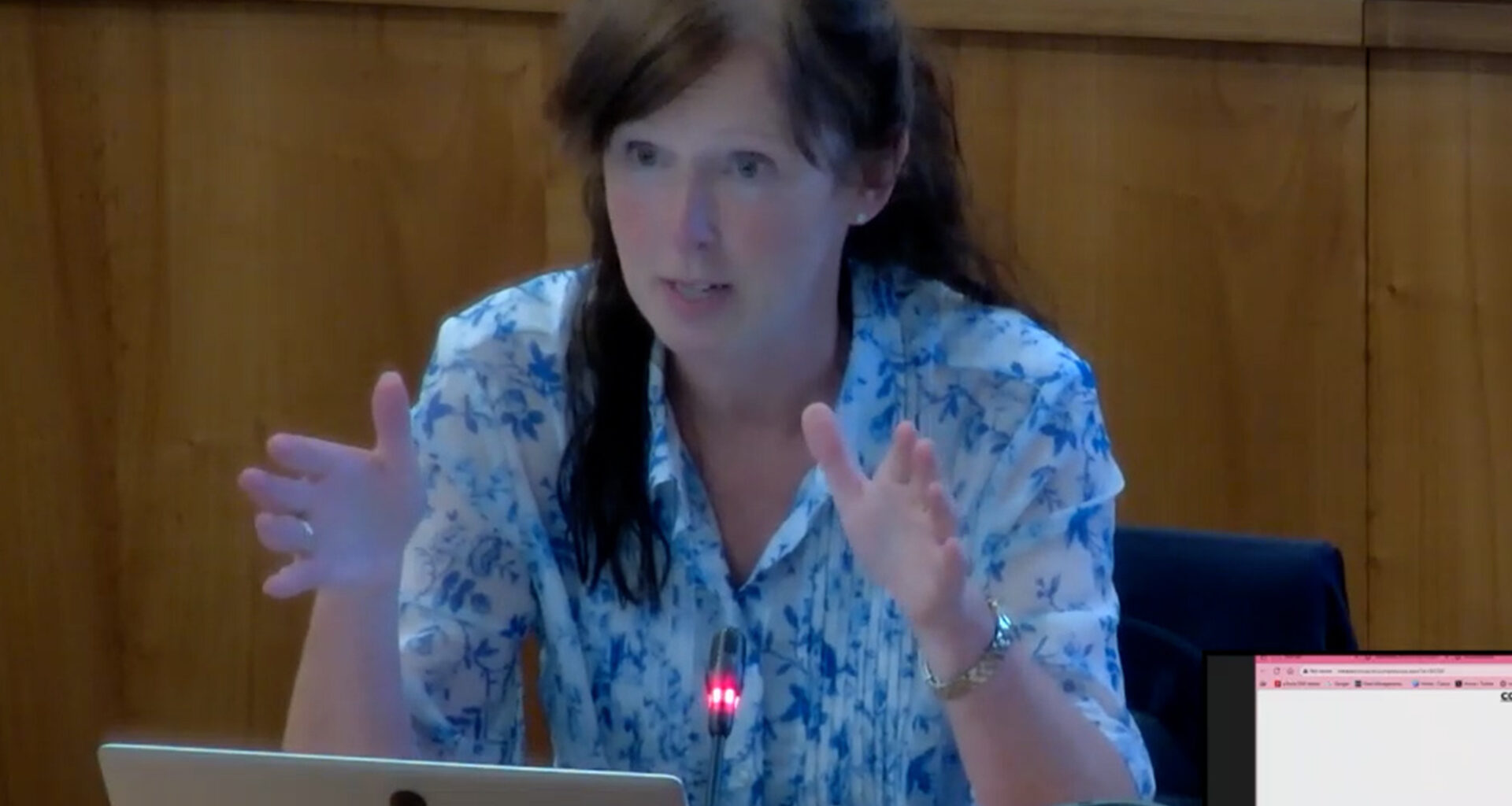South Dublin County Council (SDCC) saw heated exchanges this week as members debated a motion opposing the Ladies’ Gaelic Football Association’s (LGFA) recent rule change allowing transgender biological males to compete in the female game.
The motion, tabled by Independent councillor Ronan McMahon and seconded by Independent Ireland councillor Linda de Courcey, argued the policy threatens player safety and fairness.
The motion read “This council requests the LGFA (Ladies Gaelic Football Association) review its policy on transgender participation, to ensure fairness and safety for all its players.” If passed, the Council would have sent a letter to the LGFA outlining its concerns.
McMahon said he had yet to meet anyone in favour of the change and warned it would “undo progress” in women’s sport.
McMahon questioned how welfare could be safeguarded “both on and off the pitch, including the dressing rooms,” and asked colleagues to consider the trajectory of women’s participation in Ireland.
“The history of women’s sports in Ireland has been one of neglect and underfunding. Despite this, the increase in women and girls participating has been transformative. Let us not undo this progress,” he said.
He contended the LGFA’s approach “contradicts the science,” saying it placed “the rights of young girls and women below those male-born players who identify as women.”
McMahon argued that some female players may abandon the sport if they feel unsafe and compared the policy to “a fox identifying as a chicken being let into the hen house.”
De Courcey seconded the motion, pointing to comparative data between male and female sporting performance. She noted that in athletics and swimming, teenage boys routinely post faster times than Olympic women.
“If every man here and every woman had an arm wrestling match, men would win every time – except maybe Katie Taylor,” she said.
“This is not against anybody. This is about protecting women.”
Other independents, including Patrick Holohan and Dean Donnelly, echoed concerns about fairness in competitive settings. Holohan, speaking as a mixed martial arts coach, said he would advise against biological males competing in female categories. Donnelly, citing his daughter’s international sport training, said he would not allow her to compete against boys of similar level.
Opposition came from Sinn Féin, People Before Profit, Fianna Fáil, Fine Gael, Social Democrats, Labour and some Independent councillors, many of whom described the proposal as discriminatory.
Sinn Féin councillor Louise Dunne questioned whether any public consultation had occurred, while colleague Niamh Fennell said she was “absolutely shaken” by the discussion.
“Not one trans person wants to hurt another woman,” she said.
People Before Profit councillor Jess Spear argued that the motion endangered “trans women” while also putting some so-called “cisgender women” – i.e. women – at risk of stigma.
“Every argument that trans rights undermine cisgender women increases the danger to women,” she said.
Fellow PBP councillor Darragh Adelaide warned similar debates in other jurisdictions have coincided with increases in hate crimes.
Independent councillor Mick Duff said he was an “ally” to trans people and that they should be welcomed into community sport.
“There’s nothing new about trans people at all,” he said.
Sinn Féin councillor William Carey acknowledged fairness concerns but said the LGFA was best placed to manage its rules, and he would vote against the motion.
Fine Gael’s Vicki Casserly described the motion as exclusionary, while Fianna Fáil’s Emma Murphy praised the LGFA for pursuing a “progressive, scientific-based, medically inclusive policy.”
The debate often turned combative. Independent councillor Alan Edge dismissed safety concerns as “the old chestnut,” claiming that “statistically”, the risk to women comes from “straight men.”
Independent councillor Madeleine Johansson accused McMahon of “smoke and mirrors” to distract from more pressing issues. She said trans athletes had not proven dominant in international sport, citing the case of a New Zealand weightlifter who failed to win medals at the Olympics.
People Before Profit councillor Kay Keane argued that it was trans people, not women, who needed protection, adding that she could beat male athletes in a football competition and give someone a “thump” if she had to.
Francis Timmons, another independent, called the motion “dangerous” and said it fed into “a rhetoric of attack that is continuous against the trans community.”
The motion was ultimately defeated, receiving just 3 votes in favour, 27 votes against, and 3 abstentions.
In March, Meath County Council also rejected a motion calling on the LGFA to “reverse its transgender policy, for the sake of the safety of their membership and the sake of fairness on the football field.”

